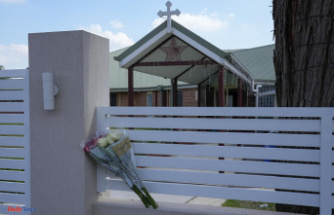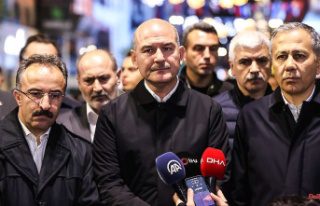While animal owners are still alarmed, the Minister of Agriculture draws a cautiously positive balance one year after the animal disease was first found in Mecklenburg-Western Pomerania.
Schwerin (dpa / mv) - The African swine fever (ASF) remains a danger a year after the first finding in the north-east. "We shouldn't be fooled into thinking we're safe here," said Minister of Agriculture Till Backhaus (SPD) at a press conference in Schwerin on Monday. The epidemic pressure is still very high.
Nevertheless, the minister sees the handling of ASF in the north-east as exemplary for the majority. The last of a total of 48 finds since November 2021 in the northeast was made on October 13, 2022, says Backhaus. These were almost exclusively wild boars. According to the information, 2,600 cases occurred in Brandenburg and 1,700 in Saxony in the same period. "Something seems to have been done right."
Animal keepers are also happy that they have largely been able to keep ASF out of their stalls, but this has been bought at a high price. "It is only thanks to the fact that the pig-keeping farms in the state strictly comply with the biosecurity measures in their facilities that so far only two cases of ASF have occurred in domestic pig populations in MV," said the Mecklenburg-Western Pomeranian Farmers' Association. The consequences for companies are dramatic. "Due to animal disease legal restrictions, overweight animals in our country remained in the stables and were not slaughtered," it said.
Backhaus also sees the plight of the livestock industry. From his point of view, the shooting of wild animals in the restricted zones must be accelerated on the one hand, and there must be progress with vaccines on the other. Without a pharmaceutical solution, the minister fears the collapse of pig farming in the country.
The farmers' association initially wants a medium-term solution to the economic problems of farms within the restricted zones. One suggestion: the federal and state governments are launching a purchase program for meat from the ASF zones. This is necessary because the effort and costs for the clinical and virological examination of the meat are otherwise not in an economically viable relationship to each other. The association sees the state as obliged to compensate for the damage caused to companies by the containment measures.
According to the Minister of Agriculture, the country's previous expenditure on disease control is around 25 million euros, plus 11.5 million euros that the federal government has made available for a compensation fund. Here, too, one has been frugal so far, Backhaus assumes that Brandenburg will have spent more than four times as much in state funds by the end of the year. The construction of the fence and the hunting premiums are therefore major costs.
A short-term change in the current situation in the country is not to be expected: the restricted zones around the discovery areas will remain in place for the time being. According to the ministry, these will only be lifted once no case of the animal disease has been detected for a year. If a new discovery is made, the waiting period begins again.












